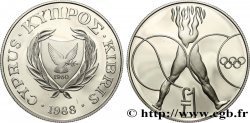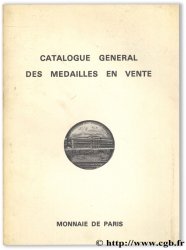Back 1/1
fme_602891 - SCIENCE & SCIENTIFIC Médaille, Georges Friedmann, n°14
90.00 €(Approx. 104.40$ | 78.30£)
Quantity
Add to your cart

Type : Médaille, Georges Friedmann, n°14
Date: 1977
Mint name / Town : Monnaie de Paris
Quantity minted : 100
Metal : copper
Diameter : 77,5 mm
Orientation dies : 12 h.
Weight : 167,6 g.
Edge : lisse + 1977 + corne CUIVRE + N°14/100
Puncheon : corne CUIVRE
Coments on the condition:
Patine bicolore, noire dans les champs et cuivreuse sur les hauts reliefs. Concrétions vertes au revers
Obverse
Obverse legend : GEORGES / FRIEDMANN.
Obverse description : Légende verticale de part et d’autre du visage du personnage. Signé : REVOL / 1976.
Reverse
Reverse legend : L’HOMME / DE - DEMAIN / DEVRA / AU / LIEU / DE LEUR / ÊTRE - ASSERVI / SE SERVIR DE SES / OEUVRES TECHNIQUES / POUR SE LIBÉRER / S’ÉPANOUIR.
Reverse description : Légende en 11 lignes autour d’un corps masculin nu.
Commentary
Il s’agit du 14e exemplaire sur une édition de 100 médailles.
Georges Friedmann (1902-1977) fut le fondateur d’une sociologie du travail humaniste. Après des études en chimie industrielle, il entra à l’École normale supérieure en 1923. Il consacra la plus grande partie de ses travaux à l'étude des relations de l'homme avec la machine dans les sociétés industrielles de la première moitié du XXe siècle.
This is the 14th medal in an edition of 100. Georges Friedmann (1902-1977) was the founder of a humanist sociology of work. After studying industrial chemistry, he entered the École Normale Supérieure in 1923. He devoted most of his work to the study of the relationship between man and machine in industrial societies in the first half of the 20th century.
Georges Friedmann (1902-1977) fut le fondateur d’une sociologie du travail humaniste. Après des études en chimie industrielle, il entra à l’École normale supérieure en 1923. Il consacra la plus grande partie de ses travaux à l'étude des relations de l'homme avec la machine dans les sociétés industrielles de la première moitié du XXe siècle.
This is the 14th medal in an edition of 100. Georges Friedmann (1902-1977) was the founder of a humanist sociology of work. After studying industrial chemistry, he entered the École Normale Supérieure in 1923. He devoted most of his work to the study of the relationship between man and machine in industrial societies in the first half of the 20th century.








 Report a mistake
Report a mistake Print the page
Print the page Share my selection
Share my selection Ask a question
Ask a question Consign / sell
Consign / sell
 Full data
Full data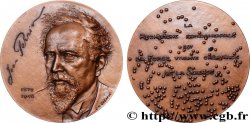
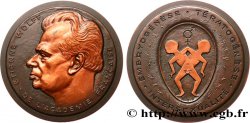
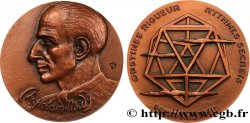


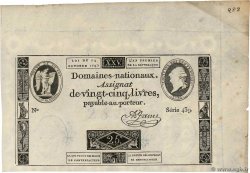
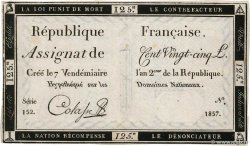

![SPANISH AMERICA - KINGDOM OF SPAIN - PHILIP III 8 Reales 161[?] Potosi XF](http://thumbs3.cgb.fr/monde/fwo_986238.jpg)
